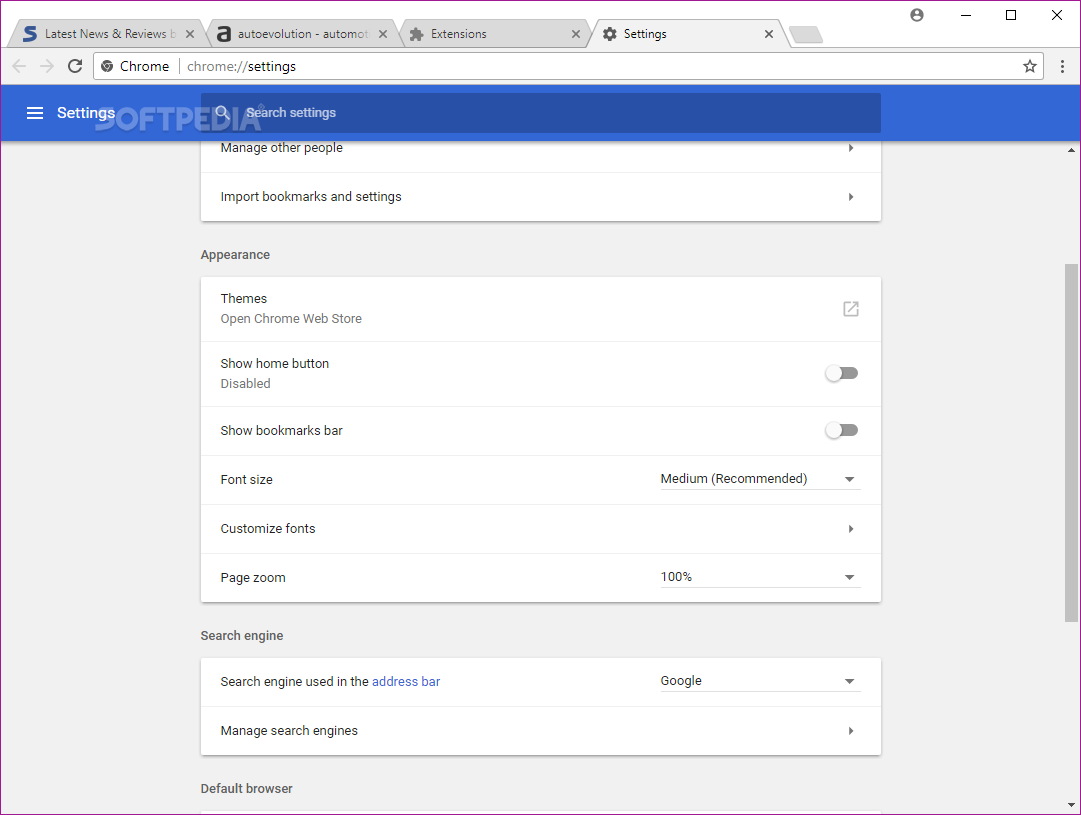

The inherent instability of Chromium and the stripped-down feature set are practically the reason behind the huge gap between the usage rates of the two browsers. The few differences between Chromium and Chrome are, in fact, essential. Builds up the foundation of many web browsers It’s safe to say that Chromium is a lighter Chrome that provides almost the same functionality as Google’s star product.
#Portable chromium download
You get the integrated download and bookmark managers, developer tools, support for incognito instances and other similar features you might be familiar with. It s port s the exact same options as its offspring, including the support for add-ons and themes. The interface of Chromium is practically identical to that of Chrome. Therefore, you might end up thinking that there are not so many differences in functionality.

When running and using Chromium, you will recognize a lot of Chrome in it, which is only normal. Delivers the feature set of an advanced web browser While Chromium is rough down to its core, with much more bugs, Chrome provides users with one of the most reliable web browsers out there, delivering a solid feature set and security-related options.
#Portable chromium code
The browser built on the Chromium’s source code is also called Chromium and is updated almost on a daily basis, which is a proof of a much less stable package com par ed to Chrome. Moreover, the data gathering mechanism is implemented by Google’s team in Chrome, while Chromium lacks such reporting capabilities.Īnother difference resides in their stability.
#Portable chromium update
On the other hand, Chrome is nowadays one of the giants in the web browsers landscape, based on Chromium, but with additional features and options contributed by Google’s development teams, such as the DRM support or the automatic update system. Cheap PH Meters, Buy Quality Tools Directly from China Suppliers:Ge 1A chromium ion detector / heavy metal detector / chromium ion meter / portable chromium. Chromium vs ChromeĪs Chromium is open-source, many have contributed to its development and various web browsers have been built upon the Chromium’s pillars. While everything in Chromium is also found in its direct descendant Chrome, you should keep in mind that they are two different, but related web browsers. If Microsoft could offer a variant that can override this behaviour and retain the settings between different machines (similar to the unofficial Firefox Portable) that would be a huge leap ahead of the rest of the chromium based competition however, a fully self contained, proper portable browser would be perfect at this stage.Chromium is the open-source project at the heart of Chrome and many other web browsers, available not just as source code but also as a standalone browser itself. Similarly, I would imagine that synchronising settings using a Microsoft account is required in Edge-Chromium.

This appears to be a deliberate design function however, one can create a Google account and sync their settings thus retain the parameters. I understand that chromium has its limitations such that settings and extensions per profile are tied to a specific computer, so if one was to copy/install the portable directory to a USB stick, insert into a different computer and execute, expecting it to retain the aforementioned parameters, it does not. I believe Opera offers an official portable version that is fully self contained, so it executes, caches data and installs extensions in a specific portable folder ONLY without writing anything to the "system drive" or elsewhere although, I believe when updating, files are temporarily written to the main system disk. The folders created are "C:\Users\X\AppData\Local\Google\Chrome\User Data\Crashpad" and "C:\Users\X\AppData\Local\Temp\GoogleChromePortable"Īdditional files and folders are also created in system drive\AppData\Local\ depending on the usage of the browser. There currently is an unofficial portable version of Google chrome available from however, folders are created in the main "system drive\AppData" location despite initiating using switches such as "-user-data-dir=" and "-disk-cache-dir=" instructing chrome otherwise. The portable variant should not write any files/folders or leave any trace on the main "system drive" or elsewhere other than the designated portable folder. Would it be possible to create an official portable version of Edge-Chromium that is fully self contained and can be run from any location including external storage such as a USB flash drive?


 0 kommentar(er)
0 kommentar(er)
